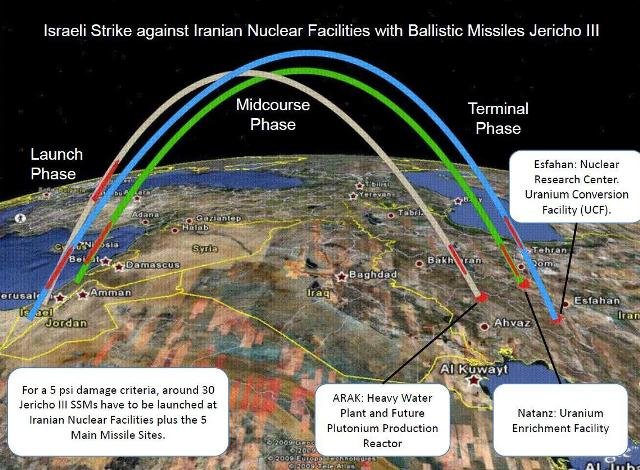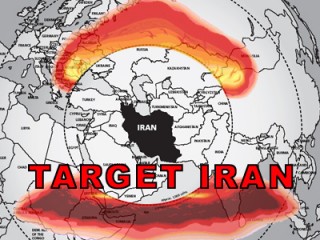Should We Have Nuremberg Trials for American NeoCons Now and Save Millions of Lives – or Do It the Hard Way?
… by Jim W. Dean, VT Editor … featuring Stephen M. Walt

The close of WWII found the victorious Allies staging the Nuremberg trials and convicting the Nazi leadership of ‘waging an aggressive war’. Those who went to the gallows were a symbolic sacrifice, as millions of innocent victims were slaughtered after WWII, under Allied control.
German POWs found themselves a convenient substitute for original plan for the mass murder of twenty million German civilians to ensure peaceful co-existence with the future German nation.
Morganthau’s Treasury Department, heavily penetrated by Soviet Espionage via the likes of Harry Dexter White had proposed reducing Germany’s population by one third to a level that would not require food imports. Morganthau’s son later stated, protectively perhaps, that the plan had really been White’s.
This would eliminate Germany’s need to be an aggressive exporter to earn the needed foreign exchange.
To Morganthau and his fellow enlightened cohorts, killing off 20 million post war Germans through starvation would be a step forward toward world peace. I suspect our Founding Fathers would disagree.
Fast forward to 2011. Morganthaus still walk among us, re-encarnated in the form of the American NeoCons and their band of merry conspirators.
‘Waging an aggressive war’ seems to be an ‘in thing’ now with these folks and I do not perceive their having any fear of prosecution under the Nuremberg precedents.
The case in point is Iran, obviously considered a lynch pin target for continued post Cold War aggression by the United States shadow government.
Here Iran sits in an area surrounded with U.S. military power and bases, with our Zionist ally brimming with WDM for which it snuffs it’s nose to the international community (and the Nuremberg precedents), protected by a UN American veto.

American NeoCons, many of them Zionist Jews, have been plotting with a foreign power and a willing military industrial complex in both countries. They advanced a ‘pre-emptive strike’ doctrine into American national defense policy, the result of several decades of Israeli Intelligence operations here.
They have penetrated key American political institutions in a manner that old Soviet spies could only look at and think, ‘Why didn’t we think of doing that.’
What was the public reaction to this ‘to hell with the Nuremberg’ precedent, and shift over to ‘waging aggressive war’? It was basically nothing. Decades of dumbing down had done it’s work.
Now, any country deemed capable of becoming a future threat, American taxpayer money could be spent by initiating a war against a country to prevent them from potentially attacking ‘U.S interests’ at a future date. I think this is a counterfeit version of Democracy.
But please hang in here with me, as it gets worse. What constitutes a potential threat in Iran’s particular case? Their having any military deterrent retaliation option to a pre-emptive strike by us or Israel…is deemed ‘a threat.’

The old adage of ‘the pot calling the kettle black’ comes to mind here if the situation were no so dangerous and a permanent stain in any greatness America once had.
The target of aggression is framed as the aggressor…by the Real aggressor(s).
All of our military and intelligence sources here at VT have confirmed that Iran is a threat to no one. It’s entire military posture is totally defensive, and rightfully necessary.
Their air force is virtually non existent and they have no sustainable logistics support for any major offensive ground action.
The campaign to paint Iran as a threat is a totally contrived one, and again, Israeli intelligence operations and their penetration and corruption of the American political leadership is the driving force behind the entire thing.
There are two American governments in existence now. One is for show…the one the most are familiar with and think is really theirs. And then there is the real government, where elections are never held, and public support is not necessary, nor sought.
They can be controlled simply by having the right tools available and a method of making the public pay for their own enslavement.
And yes, they have the money. Foreign drug dealers can easily donate now through front corporations. They are the new Santas and it’s Christmas everyday.
Where do you and your family fit into the future of these people? Think plantation animal. Can you produce some economic benefit for them in some way, or contribute to their power, like being a plantation manager.

The good news is that theoretically we have what we need to defeat them…numbers and the ability to communicate independent of their censors.
I can assure you they are working to eliminate number two. The race is on to see who will win.
The little gem them slipped into the Defense Authorization bill was a slick move they made…even setting up Obama to go along with it.
Why after ten years of a supposedly successful War on Terror with no major attacks on the U.S. or even our embassies did they feel they need to put ‘terror suspects’ arrested here under military control?
Why are the definitions of who is a terrorist or ‘providing support’ left so vague…to where even what I am writing today might target me for supporting ‘Iranian Terror’.
Does someone feel they need a safety valve way of making opponents disappear into the no Constitution or legal rights black hole?
Frankly, I feel if I did not write this or say anything, I would be supporting ‘American Terror’. So no dummy Jim Dean here is taking his name off that list as my last act of 2011.
The American shadow government is not going to voluntarily give back the power they have covertly taken through cold blooded subversion. We will have to take it back from them.

A huge hurdle we have, which we will be discussing more in 2012, is that currently they have total protection from prosecution.
There is literally nowhere to go to find a official government agency who will agree to go after them. We will have to create something new, insulated from political corruption…no easy task.
Our whistle blowers are often left hanging out to dry. So we are going to have to take ownership of the problem or their ownership of us will continue. It’s Occupy America time folks.
Fortunately we have the likes of a Stephen Walt on the front lines with us. I close out this year featuring him as a text book case of how to filet and fry NeoCons and their water carriers.
Our website traffic was way up in 2011 thanks to you. Demand for radio interviews is higher than ever. VT TV is in the pipeline. We have chosen a side. We will be carrying water for you.
Stephen M. Walt is the Robert and Renée Belfer professor of international relations at Harvard University. He does not carry water, but does drive to work with a tanker truck.
Enjoy his following, piece slicing and dicing an Iran Attack hypester. Learn from the best, as it does not get much better than this. Happy New Year, Jim W. Dean
The Worst Case for War with Iran …by Stephen M. Walt
If you’d like to read a textbook example of war-mongering disguised as “analysis,” I recommend Matthew Kroenig’s forthcoming article in Foreign Affairs, titled “Time to Attack Iran: Why a Strike Is the Least Bad Option.”
It is a remarkably poor piece of advocacy, all the more surprising because Kroenig is a smart scholar who has done some good work in the past. It makes one wonder if there’s something peculiar in the D.C. water supply.

There is a simple and time-honored formula for making the case for war, especially preventive war.
First, you portray the supposed threat as dire and growing, and then try to convince people that if we don’t act now, horrible things will happen down the road. (Remember Condi Rice’s infamous warnings about Saddam’s “mushroom cloud”?)
All this step requires is a bit of imagination and a willingness to assume the worst.
Second, you have to persuade readers that the costs and risks of going to war aren’t that great.
If you want to sound sophisticated and balanced, you acknowledge that there are counterarguments and risks involved. But then you do your best to shoot down the objections and emphasize all the ways that those risks can be minimized.
In short: In Step 1 you adopt a relentlessly gloomy view of the consequences of inaction; in Step 2 you switch to bulletproof optimism about how the war will play out.
Kroenig’s piece follows this blueprint perfectly. He assumes that Iran is hellbent on getting nuclear weapons (not just a latent capability to produce one quickly if needed) and suggests that it is likely to cross the threshold soon.
Never mind that Iran has had a nuclear program for decades and still has no weapon, and that both the 2007 and 2011 National Intelligence Estimates have concluded that there is no conclusive evidence that Iran is pursuing an actual bomb.
He further assumes — without a shred of evidence — that a nuclear-armed Iran would have far-reaching geopolitical consequences. For example, he says that other states are already “shifting their allegiances to Tehran” but doesn’t offer a single example or explain how these alleged shifts have anything to do with Iran’s nuclear program.
He also declares, “With atomic power behind it, Iran could threaten any U.S. political or military initiative in the Middle East with nuclear war.” Huh?
If this bizarre fantasy were true, why couldn’t the former Soviet Union do similar things during the Cold War, and why can’t other nuclear powers make similar threats today when they don’t like a particular American initiative? The simple reason is that threatening nuclear war against the United States is not credible unless one is willing to commit national suicide, and even Kroenig concedes that Tehran is not suicidal.

Nuclear weapons are good for deterring attacks on one’s own territory (and perhaps the territory of very close allies), but that’s about it. They are not good for blackmail, coercive diplomacy, or anything else.
And if Kroenig is right in warning that an Iranian nuclear weapon might lead others to develop them too, then Iran would end up being deterred by the United States, by Israel, and by some of its other neighbors too. (As I’ve noted before, Iran’s awareness of this possibility may be one reason why Tehran has thus far stayed on this side of the nuclear threshold.)
Kroenig also declares that a nuclear-armed Iran would force the United States to “deploy naval and ground units and potentially nuclear weapons across the Middle East, keeping a large force in the area for decades to come.”
But why? Iran’s entire defense budget is only about $10 billion per year (compared with the nearly $700 billion the United States spends on national defense), and it has no meaningful power-projection capabilities. Thus, contrary to what Kroenig thinks, containing/deterring Iran would not add much to U.S. defense burdens.
The Persian Gulf is already an American lake (from a military point of view), and Washington already has thousands of nuclear weapons in its own arsenal. Given how weak Iran really is, containing or deterring them for the foreseeable future will be relatively easy.
The key point is that Kroenig offers up these lurid forecasts in a completely uncritical way. He never asks the probing questions that any security scholar with a Ph.D. should axiomatically raise and examine in a sophisticated manner.
Instead, his article is a classic illustration of worst-case analysis, intended to make not going to war seem more dangerous than peace.
When he turns to the case for using force, however, Kroenig offers a consistently upbeat appraisal of how the war would go. (Needless to say, this is not the kind of analysis one would expect from a Georgetown professor.) He knows there are serious objections to his proposed course of action, and he works hard to come up with reasons why these concerns should be not be taken seriously.
What if Iran has concealed some of its facilities? Such fears are overblown, he thinks, because our intelligence is really, really good. (Gee, where have we heard that before?)
What about facilities that are hardened or defended? Not an insurmountable obstacle, he maintains, and in any case there are plenty of other facilities that are aboveground and vulnerable.
Isn’t there a danger of civilian casualties? Well, yes, but “Washington should be able to limit civilian casualties in any campaign.”
What if Iran escalates by firing missiles at U.S. allies, ordering its proxies to attack Israel, or closing the Strait of Hormuz to oil shipments? Not to worry, says Kroenig, “None of these outcomes is predetermined,” and the United States “could do much to mitigate them.” (Of course, none of the scary outcomes that Kroenig says would accompany an Iranian bomb are “predetermined” either.)
Doesn’t starting a war increase the risk of regional conflict, especially if Iran retaliates and Americans or Israelis die? Maybe, but not if the United States makes its own “redlines” clear in advance and if it takes prudent steps to “manage the confrontation.” To do this we have to be willing to “absorb Iranian responses that [fall] short of these redlines” and reassure the mullahs that we aren’t trying to overthrow them (!). Bombing another country is a peculiar way to “reassure” them, of course, and it’s a bit odd to assume that those wicked Iranians will be cooperative and restrained as the bombs rain down.
Won’t Iran just reconstitute its nuclear program later, and possibly on a crash basis? It might, but Kroenig says that we would have bought time and that whacking the Iranians really hard right now might convince them to give up the whole idea. Or not.

You see the pattern. When Kroenig is trying to justify the need for war, he depicts an Iran with far-reaching capabilities and dangerously evil intentions in order to convince readers that we have to stop them before it is too late.
But when he turns to selling a preventive war, then suddenly Iran’s capabilities are rather modest, its leaders are sensible, and the United States can easily deal with any countermeasures that Iran might take.
In other words, Kroenig makes the case for war by assuming everything will go south if the United States does not attack and that everything will go swimmingly if it does.This is not fair-minded “analysis”; it is simply a brief for war designed to reach a predetermined conclusion.
And let’s be crystal clear about what Kroenig is advocating here. He is openly calling for preventive war against Iran, even though the United States has no authorization from the U.N. Security Council, it is not clear that Iran is actively developing nuclear weapons, and Iran has not attacked us or any of our allies — ever.
He is therefore openly calling for his country to violate international law. He is calmly advocating a course of action that will inevitably kill a significant number of people, including civilians, some of whom probably despise the clerical regime (and with good reason).
And Kroenig is willing to have their deaths on his conscience on the basis of a series of unsupported assertions, almost all of them subject to serious doubt.
Kroenig tries to allay this concern by saying that the main victims of a U.S. attack would be the “military personnel, engineers, scientists, and technicians” working at Iran’s nuclear facilities.
But even if we assume for the moment that this is true, would he consider Iran justified if it followed a similar course of action, to the limited extent that it could?

Suppose a bright young analyst working for Iran’s Revolutionary Guards read the latest issue of Foreign Affairs and concluded that there were well-connected people at American universities and in the Department of Defense who were actively planning and advocating war against Iran.
Suppose he further concluded that if these plans are allowed to come to fruition, it would pose a grave danger to the Islamic Republic.
Iran doesn’t have a sophisticated air force or drones capable of attacking the United States, so this bright young analyst recommends that the Revolutionary Guards organize a covert-action team to attack the people who were planning and advocating this war, and to do whatever else they could to sabotage the forces that the United States might use to conduct such an attack.
He advises his superiors that appropriate measures be taken to minimize the loss of innocent life and that the attack should focus only on the “military and civilian personnel” who were working directly on planning or advocating war with Iran.
From Iran’s perspective, this response would be a “preventive strike” designed to forestall an attack from the United States.
Does Kroenig think a purely preventive measure of this kind on Iran’s part would be acceptable behavior? And if he doesn’t, then why does he think it’s perfectly OK for us to do far more?
Editing: Jim W. Dean

Jim W. Dean was an active editor on VT from 2010-2022. He was involved in operations, development, and writing, plus an active schedule of TV and radio interviews.
ATTENTION READERS
We See The World From All Sides and Want YOU To Be Fully InformedIn fact, intentional disinformation is a disgraceful scourge in media today. So to assuage any possible errant incorrect information posted herein, we strongly encourage you to seek corroboration from other non-VT sources before forming an educated opinion.
About VT - Policies & Disclosures - Comment Policy





